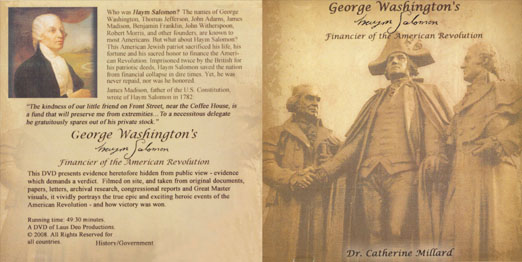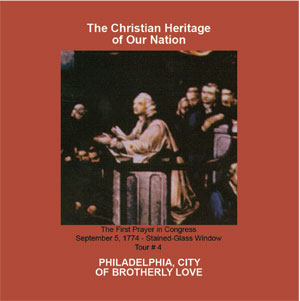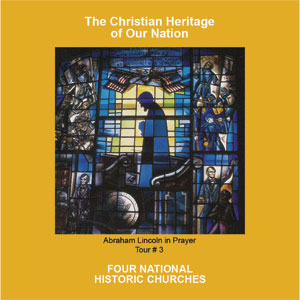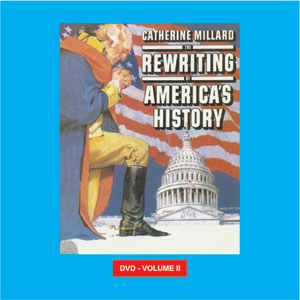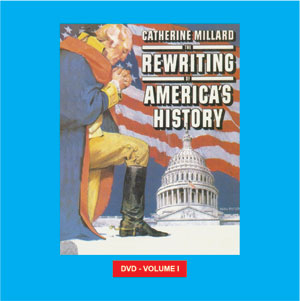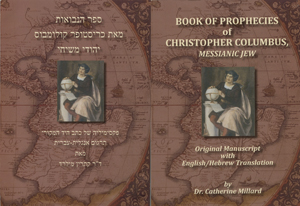Benjamin Franklin has been universally acclaimed for his wisdom, virtue and wit. What books were a pivotal influence in this founding father’s education as a youth?
In a letter written by Benjamin Franklin to Dr. Mather of Boston, from Passy, France, we read that as a boy, Franklin read the book, “Essays to do Good,” by renowned evangelist and theologian, Dr. Cotton Mather, and that this book had a lasting influence upon his life and conduct:
“Passy, May 12, 1784
To: Doctor Mather of Boston.
Rev. Sir,
I received your kind letter, with your excellent advice to the people of the United States, which I read with great pleasure, and hope it will be duly regarded. Such writings though they may be lightly passed over by many readers, yet, if they make a deep impression on one active mind in a hundred, the effects may be considerable.
Permit me to mention one little instance, which, though it relates to myself, will not be quite uninteresting to you. When I was a boy, I met with a book entitled “Essays to do Good,” which I think was written by your father. It had been so little regarded by a former possessor, that several leaves of it were torn out; but the remainder gave me such a turn of thinking, as to have an influence on my conduct through life: for I have always set a greater value on the character of a doer of good, than any other kind of reputation; and if I have been, as you seem to think, a useful citizen, the public owes the advantage of it to that book.
You mention your being in your 78th year. I am in my 79th. We are grown old together. It is now more than sixty years since I left Boston; but I remember well both your father and grandfather, having heard them both in the pulpit, and seen them in their houses. The last time I saw your father was in the beginning of 1724, when I visited him after my first trip to Pennsylvania. He received me in his library; and on my taking leave, showed me a shorter way out of the house, through a narrow passage, which was crossed by a beam overhead. We were still talking as I withdrew, he accompanying me behind, and I, turning partly toward him, when he said hastily, “Stoop, stoop!” I did not understand him till I felt my head hit against the beam. He was a man who never missed any occasion of giving instruction, and upon this he said to me: “You are young, and have the world before you: stoop as you go through it, and you will miss many hard thumps.” This advice, thus beat into my heart, has frequently been of use to me; and I often think of it, when I see pride mortified, and misfortunes brought upon people by their carrying their heads too high.
I long much to see again my native place; and once hoped to lay my bones there. I left it in 1723. I visited it in 1733, 1743, 1753 and 1763; and in 1773, I was in England. In 1775 I had a sight of it, but could not enter, it being in possession of the enemy. I did hope to have been there in 1783, but could not obtain my dismission from this employment here; and now I fear I shall never have that happiness. My best wishes however attend my dear country, “esto perpetua.” It is now blessed with an excellent Constitution: may it last forever!
This powerful monarchy continues its friendship for the United States. It is a friendship of the utmost importance to our security, and should be carefully cultivated. Britain has not yet well digested the loss of its dominion over us; and has still at times some flattering hopes of recovering it. Accidents may increase those hopes, and encourage dangerous attempts. A breach between us and France would infallibly bring the English again upon our backs: and yet we have some wild beasts among our countrymen, who are endeavouring to weaken that connection.
Let us preserve our reputation, by performing our engagements; our credit, by fulfilling our contracts; and our friends, by gratitude and kindness: for we know not how soon we may again have occasion for all of them.
With great and sincere esteem,
I have the honour to be,
Reverend Sir,
Your most obedient and humble servant,
B. FRANKLIN.”1
Following are excerpts from this book:
BONIFACIUS.
An ESSAY upon the GOOD, that is to be
Devised and Designed,
by those Who Desire to Answer the Great END
of Life, and to DO GOOD While they Live.
A BOOK Offered, First, in General, unto all
CHRISTIANS, in PERSONAL Capacity, or in
A RELATIVE.
by
Rev. Cotton Mather, D.D.
Published in 1710.
1. Such glorious things are spoken in the oracles of our good God, concerning them who devise good, that, a Book of Good Devices, may very reasonably demand attention and acceptance from them that have any impressions of the most reasonable religion upon them. I am devising such a book; but at the same time offering a sorrowful demonstration, that if men would set themselves to devise good, a world of good might be done, more than there is, in this present evil world. It is very sure, the world has need enough. There needs abundance to be done, that the great God and His Christ may be more known and served in this world; and that the errors which are impediments to the acknowledgements wherewith men ought to glorify their Creator and Redeemer, may be rectified…2
Benjamin Franklin’s letter to his son:
“…Our humble family had early embraced the Reformation. They remained faithfully attached during the reign of Queen Mary, when they were in danger of being molested on account of their zeal against popery. They had an English Bible, and, to conceal it the more securely, they conceived the project of fastening it, open, with pack-threads across the leaves, on the inside of the lid of a close-stool. When my great-grandfather wished to read to his family, he reversed the lid of the close-stool upon his knees, and passed the leaves from one side to the other, which were held down on each side by the pack-thread. One of the children was stationed at the door, to give notice if he saw the proctor (an officer of the Spiritual Court) make his appearance: in that case, the lid was restored to its place, with the Bible concealed under it as before…
The whole family preserved its attachment to the Church of England till towards the close of the reign of Charles II, when certain ministers, who had been ejected as non-conformists, having held conventicles in Northamptonshire, they were joined by Benjamin and Josias, who adhered to them ever after. The rest of the family continued in the episcopal church.
My father, Josias, married early in life. He went with his wife and three children, to New England, about the year 1682. Conventicles being at that time prohibited by law, and frequently disturbed, some considerable persons of his acquaintance determined to go to America, where they hoped to enjoy the free exercise of their religion, and my father was prevailed on to accompany them…My father had also by the same wife four children born in America, and ten others by a second wife, making in all seventeen. I remember to have seen thirteen seated together at his table, who all arrived to years of maturity, and were married. I was the last of the sons, and the youngest child, excepting two daughters. I was born at Boston in New England. My mother, the second wife, was Abiah Folger, daughter of Peter Folger, one of the first colonists of New England, of whom Cotton Mather makes honourable mention, in his Ecclesiastical History of that province, as “a pious and learned Englishmen,” if I rightly recollect his expressions…
I was sent at the age of eight years, to a grammar school.* My father destined me for the church, and already regarded me as the chaplain of the family. The promptitude with which from my infancy I had learned to read, for I do not remember to have been ever without this acquirement, and the encouragement of his friends, who assured him that I should one day certainly become a man of letters, confirmed him in this design. My uncle Benjamin approved also of the scheme, and promised to give me all his volumes of Sermons, written, as I have said, in the short-hand of his invention, if I would take the pains to learn it.
I remained however scarcely a year at the grammar school, although, in this short interval, I had risen from the middle to the head of my class, from thence to the class immediately above, and was to pass, at the end of the year, to the one next in order. But my father, burdened with a numerous family, found that he was incapable, without subjecting himself to difficulties, of providing for the expense of a collegiate education;…took me from the grammar school, and sent me to a school for writing and arithmetic, kept by a Mr. George Brownwel, who was a skillful master, and succeeded very well in his profession by employing gentle means only, and such as were calculated to encourage his scholars. Under him I soon acquired an excellent hand…
From my earliest years I had been passionately fond of reading, and I laid out in books all the little money I could procure. I was particularly pleased with accounts of voyages. My first acquisition was Bunyan’s collection in small separate volumes.** These I afterwards sold in order to buy an historical collection by R. Burton, which consisted of small volumes, amounting in all to about forty or fifty. 3
To learn more, click here.
___________________________
Bibliography:
* The Boston Latin School, still standing.
** John Bunyan, author of “Pilgrim’s Progress” and “Grace Abounding to the Chief of Sinners.”
1
Franklin, Benjamin. Works of the Late Dr. Benjamin Franklin, consisting of His Life, written by himself. Vol. II. Letter from Benjamin Franklin to Doctor Mather of Boston, May 12, 1784, Passy, France. London: 1793. Library of Congress, Rare Book Collection.
2
Mather, Cotton, D.D. Bonifacius. An Essay upon the Good, that is to be Devised and Designed, by Those who Desire to Answer the Great End of Life, and to do Good while they Live. A Book offered, First, in General, unto all Christians, in a Personal Capacity, or in a Relative. Ephesians 6:8. Knowing that whatsoever good thing any man does, the same will he receive of the Lord. Boston in N. England: Printed by B. Green at his Shop in Corn Hill, 1710. Library of Congress, Rare Book Collection.
3
Franklin, Benjamin. Works of the Late Benjamin Franklin, consisting of His Life, written by himself. Vol. I. (The Life of Dr. Franklin as the First Volume). My dear son. Printed for G.G.J. and J. Robinson, Pater-noster Row, 1793. Library of Congress Rare, Book Collection.

